The Japanese government has established Japan Innovation Campus in Silicon Valley, a base for supporting domestic startups eager to enter overseas markets. The aim is to create a supportive ecosystem for incubating startups that can compete on the world stage.
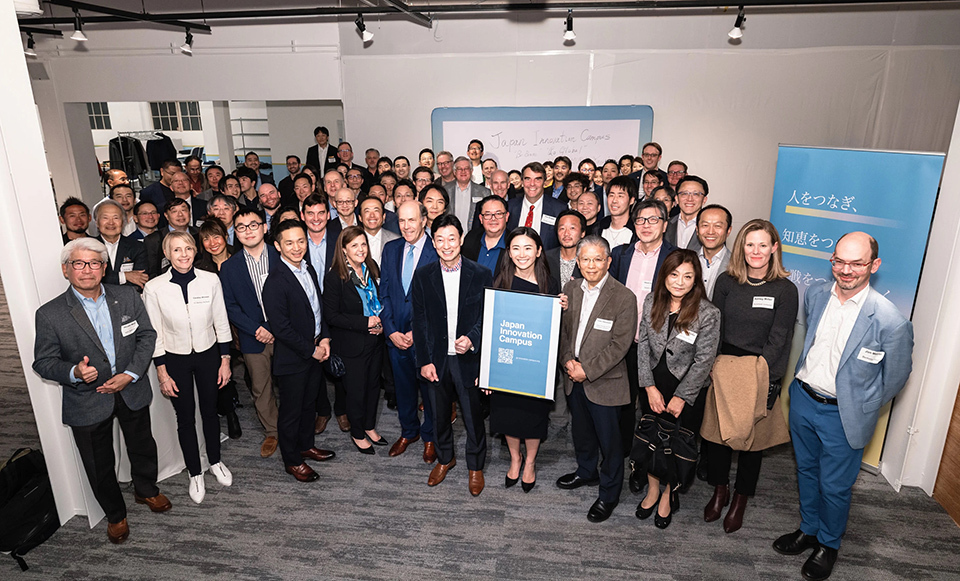
An opening ceremony for Japan Innovation Campus took place in November 2023. Attended by entrepreneurs, venture capital representatives and academics, more than 50 companies registered with JIC, including core working members and office members.
Startups are frequently torchbearers of innovation, and as such, are indispensable for activating the economy and sustaining its growth. The Kishida Administration, which declared 2022 to be the “first year for founding startups,” announced the Startup Development Five-year Plan in November of the same year. The goals of the plan are to create an ecosystem for nurturing startups by promoting collaboration among industry, government, and academia, and to increase investment in startups ten-fold over the five-year period of the plan.
Emphasis was also placed on nurturing startups that can compete in the global market. That led the Ministry of Economy, Trade and Industry (METI) to establish the Japan Innovation Campus (JIC) in Silicon Valley, California, United States, which possesses one of the world’s most well-developed ecosystems for startups. JIC acts as a support base for Japanese startups, offering global business development and assistance in pursuing collaboration with U.S. startups and venture capital (VC) firms, as well as linking them to financing from local venture capital firms and networking possibilities with other startups. It also links them to globally ranked universities, other academic organizations, and administrative bodies in the region.
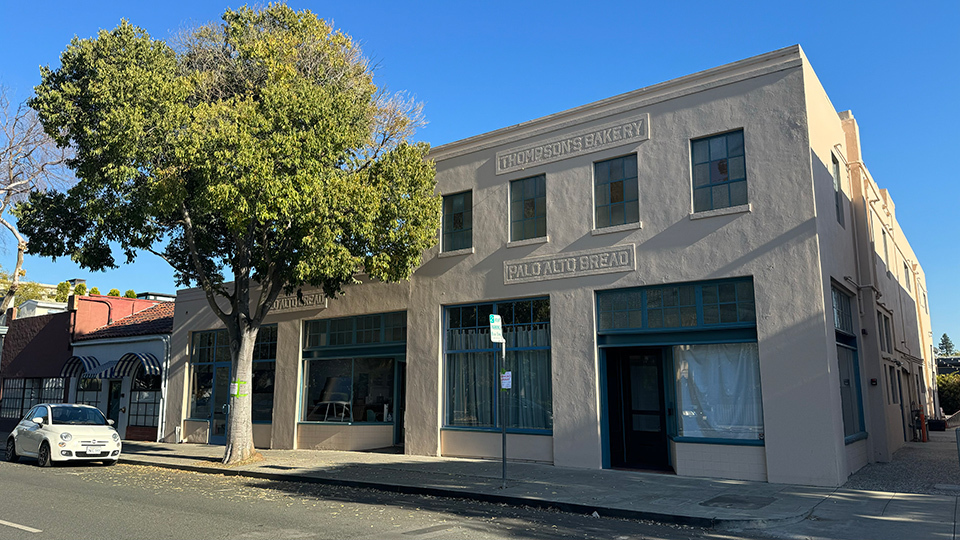
JIC is situated in central Palo Alto. Its proximity to Stanford University means it is excellently located.
JIC is situated in central Palo Alto, a city south of San Francisco that lies at the center of Silicon Valley. The century-old two-story structure housing its offices has a warm appearance and was once occupied by a local VC firm and a design firm. The opening ceremony, which took place in November 2023, was attended by then-METI Minister NISHIMURA Yasutoshi, former U.S. Ambassador to Japan John Roos, then-Mayor of Palo Alto Lydia Kou, various other leaders of the region, Stanford University officials, and VC representatives. “It was a genial gathering that reflected high hopes for the future of Japanese startups,” says AKASHI Hiroyo, JIC general manager.
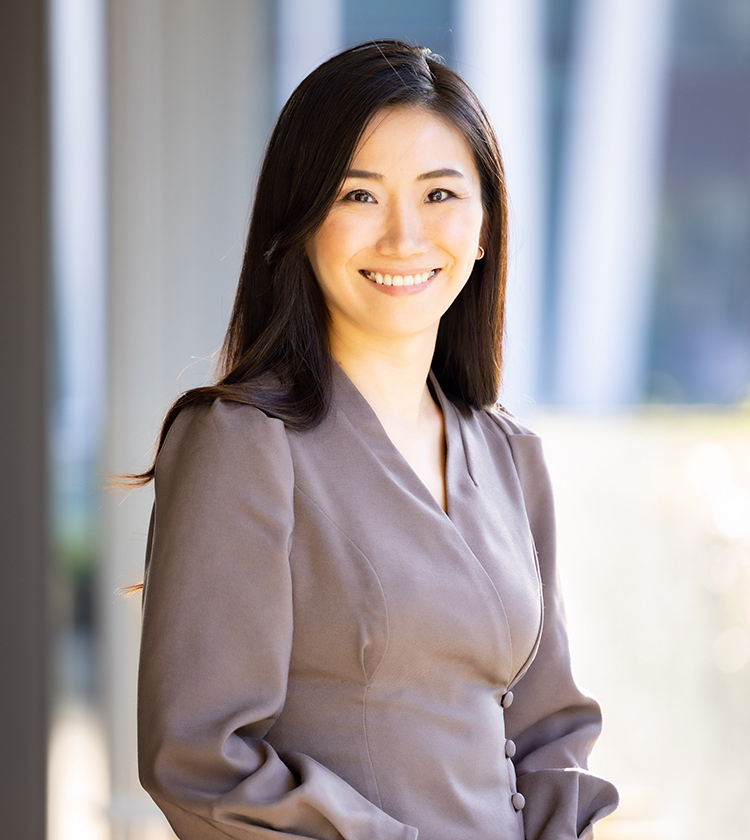
“We want to work actively toward building relations with local venture capital firms,” says JIC general manager AKASHI Hiroyo.
Selected via numerous open recruitment screenings, about 50 startups, mainly in the IT, bio and healthcare sectors, are currently registered with JIC. Five are “office members”—i.e., startups that use private office spaces,—including HOMMA, a company creating smart homes in the U.S. by integrating all stages of development of the related hardware and software, and Cuorips Inc., a developer of the iPS cell-derived cardiomyocyte sheets needed for heart transplants. The remaining companies are “co-working members,” which utilize co-working spaces in the building. Drop-in users have also been accepted.
While JIC will help match business partners and support members as they settle into life in Silicon Valley, its main focus is the creation of a community that brings people and entities together. “A ‘campus’ is not just a place. Our name—Japan Innovation Campus—reflects the hope that ours will truly be a campus where information and experiences of failure are shared and people learn with and from each other,” says Akashi. “It will be a place where the wisdom of individuals is gathered and can be applied to the experiences of others. Cultivating such an environment will expand the ecosystem, supporting the next generation of entrepreneurs and ecosystem members,” she adds.
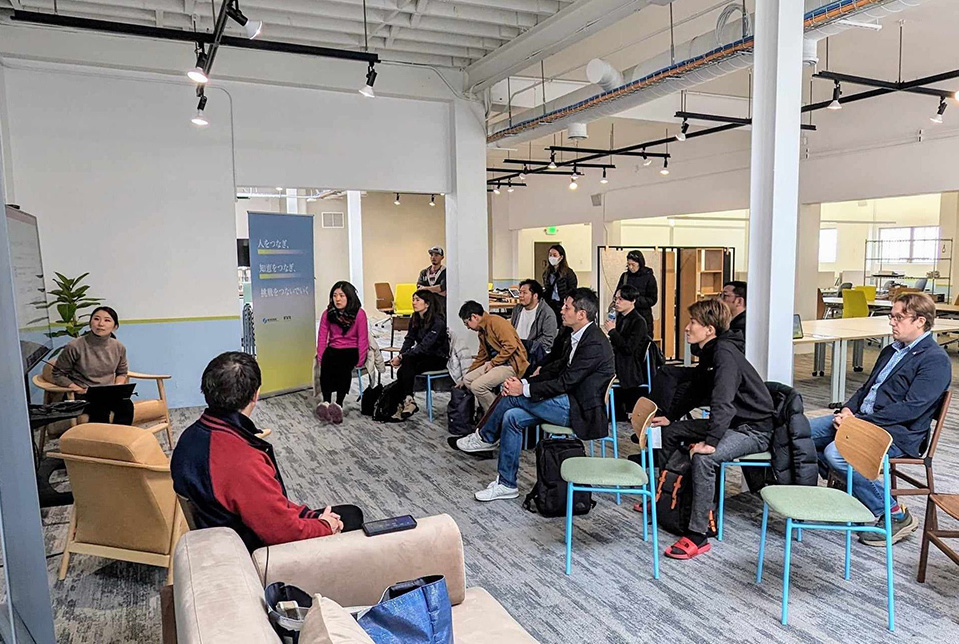
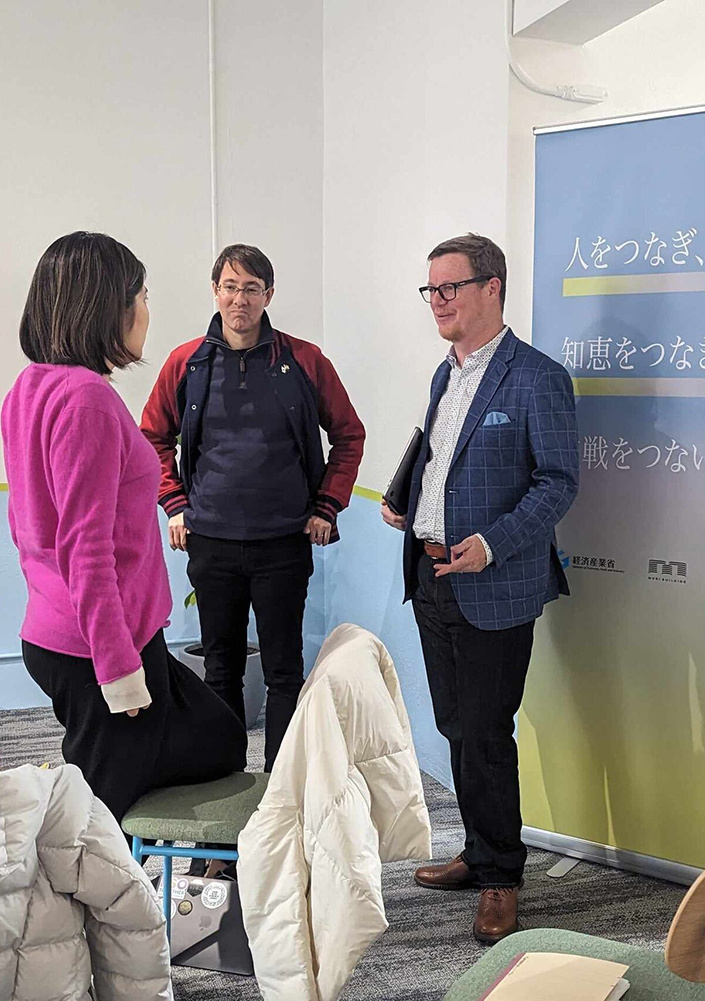
JIC frequently hosts seminars and study sessions where entrepreneurs, local venture capitalists, and accelerators engage in energetic discussions.
JIC officially opened its doors in January 2024. Numerous events and seminars have already taken place there, with members engaging in lively intergroup exchanges. In Silicon Valley, it is essential for businesses to take off as quickly as possible, so JIC values three attitudes in its support of keen entrepreneurs: chase your vision, fail and learn, and pay it forward.
Akashi explains, “Before all else, a business must succeed as a business. The individuals whose businesses succeed through JIC will add to the high reputation of the Japanese startup ecosystem in Silicon Valley, and they will pass on the knowledge they have gained through the center to the next generation of startups. That is the kind of ‘pay it forward’ culture that we want to nurture here.”





























